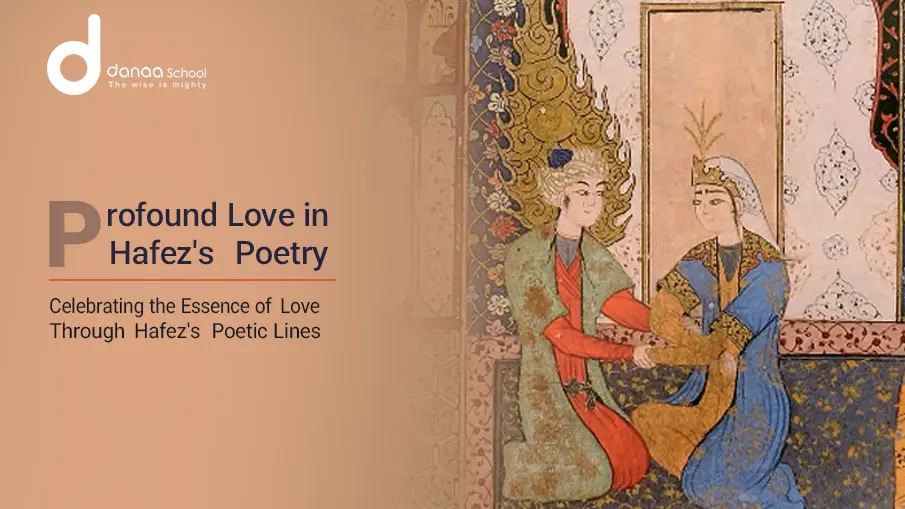Hafez Poetry Books: Themes, Symbolism, and Lasting Influence
Hafez poetry books remain among the most influential works in Persian literature. Hafez, also known as Khwāja Shams-ud-Dīn Muḥammad Ḥāfeẓ-e Shīrāzī, was born in the 14th century in Shiraz, Iran. His poetry blends lyrical beauty with deep spiritual insight, exploring love, mysticism, and the human search for truth.
The Life and Times of Hafez
To fully appreciate Hafez poetry books, it is important to understand the historical and cultural context of his life. Born around 1315 CE during a period of political instability and social upheaval, Hafez lived in an era shaped by conflict, transformation, and spiritual questioning.
The title “Hafez,” meaning “one who memorizes,” reflects his mastery of the Quran. This background deeply influenced his poetic voice, allowing him to merge religious symbolism with mystical and philosophical reflections. He spent most of his life in Shiraz, where he gained recognition for his masterful ghazals.
Core Themes in Hafez Poetry Books
Hafez poetry books explore themes that continue to resonate across centuries and cultures. His verses speak to the soul while challenging conventional thinking.
1. Divine Love and Spirituality
One of the most central themes in Hafez’s poetry is divine love. His work often blurs the boundary between earthly affection and spiritual longing, presenting love as a path toward union with the divine.
2. The Transience of Life
Hafez frequently reflects on the fleeting nature of life and worldly pleasures. His poems remind readers that material success is temporary and that spiritual awareness offers lasting fulfillment.
3. Critique of Hypocrisy
A recurring motif in Hafez poetry books is the critique of religious and social hypocrisy. Hafez questions outward displays of piety while emphasizing sincerity, inner truth, and personal spiritual experience.
Wine, Joy, and Spiritual Freedom
References to wine and taverns appear frequently in Hafez’s poetry. While often misunderstood literally, these symbols represent spiritual ecstasy, freedom from rigid norms, and the celebration of divine presence beyond formal boundaries.
Symbolism in Hafez Poetry
Hafez poetry books are rich in symbolism, allowing each verse to carry multiple layers of meaning.
- Wine: Symbol of divine intoxication and spiritual awakening
- The Beloved: Representation of ultimate truth or God
- The Tavern: A place of spiritual liberation and inner reflection
- The Cupbearer: A guide leading the soul toward wisdom
Cultural Impact of Hafez Poetry Books
Hafez’s influence extends far beyond literature. His poetry is deeply embedded in Persian culture and daily life. One of the most well-known traditions associated with his work is Fal-e Hafez, where people seek guidance by opening his divan at random.
His verses are recited during celebrations such as Nowruz and family gatherings, reflecting how his words continue to shape cultural identity and spiritual reflection.
Why Hafez Poetry Books Still Matter Today
Centuries after his death, Hafez poetry books remain relevant for modern readers. His insights into love, truth, and human vulnerability speak directly to contemporary experiences.
Universal Themes
Love, longing, hope, and self-discovery are universal emotions that transcend time and culture, making Hafez’s work accessible worldwide.
Lyrical Beauty
Hafez’s mastery of rhythm and language gives his poetry a musical quality that continues to captivate readers and listeners alike.
Philosophical Depth
His poetry offers profound philosophical reflection, encouraging introspection and personal growth in an increasingly fast-paced world.
How to Engage with Hafez Poetry Books
Reading Hafez is not a passive experience. His poetry invites reflection and interpretation.
Read Slowly and Reflect
Take time with each verse. Meaning often unfolds gradually through contemplation.
Explore Multiple Translations
Different translations highlight different nuances of Hafez’s language and symbolism, deepening understanding.
Discuss with Others
Reading groups and discussions can reveal new interpretations and cultural insights.
FAQs
What are Hafez poetry books about?
They explore love, spirituality, human nature, and the search for truth through symbolic and mystical language.
Why is Hafez important in Persian culture?
Hafez is considered a cultural icon whose poetry influences literature, spirituality, music, and everyday life in Persian-speaking communities.
Are Hafez poetry books religious?
While rooted in spiritual thought, Hafez’s poetry transcends formal religion and focuses on personal spiritual experience rather than doctrine.
Conclusion
Hafez’s poetry stands as a testament to the enduring power of words to transcend time and culture. His exploration of love, truth, and the human spirit continues to inspire and enlighten readers worldwide. Whether you’re a long-time admirer or new to his work, engaging with Hafez’s poetry can offer profound wisdom and beauty that resonates deeply with our shared human experience.
If you enjoyed this exploration of Hafez’s poetry, consider diving deeper into his works and perhaps even sharing his verses with friends and family. The timeless wisdom and lyrical elegance of Hafez await your discovery.










